Piloting the Methodology of the InterGenic Project in Austria and Belgium
We have delivered 2 workshops back-to-back in Graz, where seniors showed us how to make a skin creme from Juniper Berries, Olive Oil and Bee Wax, while the youngsters taught them how to take better smartphone photos of the products they make at home, with minimum resources. In Odisee University, Belgium, in the meantime, a workshop on sewing took place, where young people could learn to make tote bags from old textiles, practising recycling and learning useful skills.
Janevski, Keygnaert
4/10/20252 min read
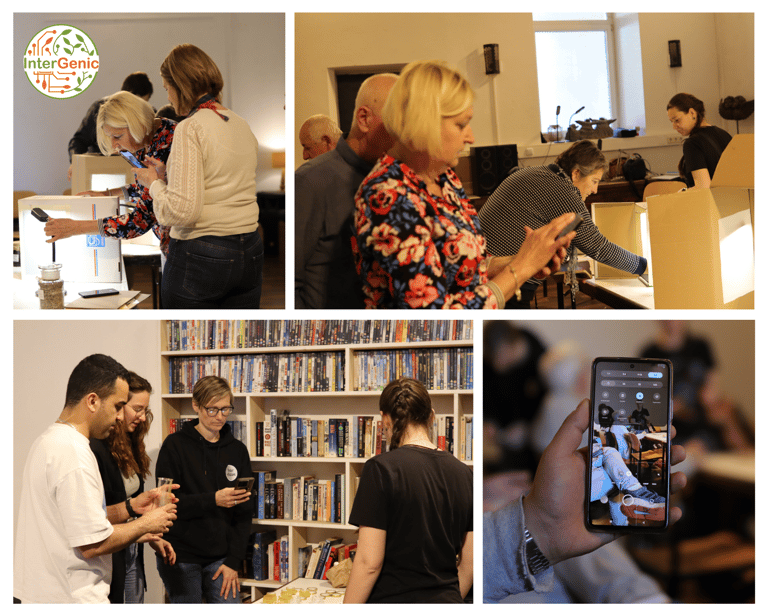

On the 4th of April 2025 we hosted two workshops in BASE, Graz, where Seniors taught young people how to make skin products from basic ingredients like olive oil, bee wax and juniper berries, and in return, they were taught how to improve their smartphone photography skills when it comes to product photography.
We started with a a procedure of warming up the oil in which juniper berries were soaked for 2 months previously to 40 degrees, and when the temperature was reached, bee wax was added and the mixture was left to rest for a while. Then after removing the berries, and ensuring the containers were sterile, we filled them up with the mixture which changed consistency after cooling down.
In the meantime, while waiting for the cream to settle, young people delivered a presentation on the basics of phone photography to introduce seniors to the basic photography capabilities of their phones. They learned to distinguish between different modes and settings, as well as macro and portrait photography, and discover additional modes which most of them were not aware of.
In the next phase, we proceeded with building a box (top right in the collage) for product photography with controlled light, while we gave them some hints on how to achieve good light even without it (afternoon sunlight through a window, morning sunshine in a similar fashion). After creating the boxes, with transparent paper on the left and the right side, we placed them on the tables, with lamps on the sides, and created the background to bring the focus to the product in the middle. The products they were invited to bring themselves as many of them produce goods at home (marmalades, beverages, creams, lavender bags...). Then we took many photos and tested different boxes with different sizes and lights, to compare the conditions and results.
It was a productive day for all of us in InterAktion, as well as a fruitful learning experience for both groups, young and seniors. We will continue the journey of photography and sustainable practices in May, when we meet again at one of our participant's gardens, to do some nature and architecture photography, as well as gardening and cooking 3 ingredient biscuits.
InterAktion Austria
Odisee, Belgium
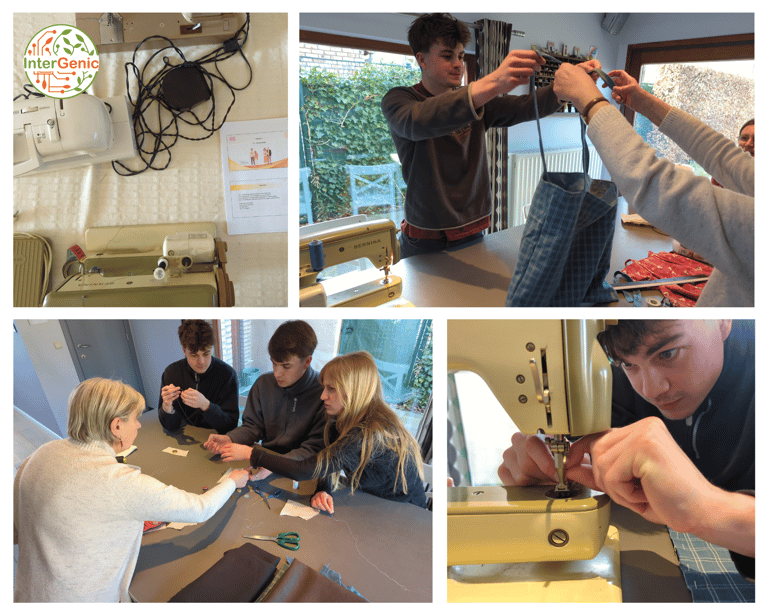

In the world of abundance and waste, learning to be minimalist and value resources and materials which are not to be wasted yet is a sustainable knowledge and behaviour that we need to reduce waste and increase awareness of the environment and our impact on it.
In this workshop, young people could learn how to sew, a skill that is slowly so scarce in Western cultures that repairing clothes is not possible sometimes. In this learning-by-doing activity, they could create their tote bags from other fabrics they could find around at home, like jeans, dresses, and linen (photo). They were trained by seniors, most of who knew sewing inside out, growing up in different times, of scarcity and home-made products and DIY skills.
In the next stage, the University is organizing a hackathon where more cooperative actions between youngsters and seniors will take place, and a concept for a final product for an intergenerational action supporting the green and digital transition of the EU with the participation of the youth and the seniors will be developed.
Stay tuned for more updates.
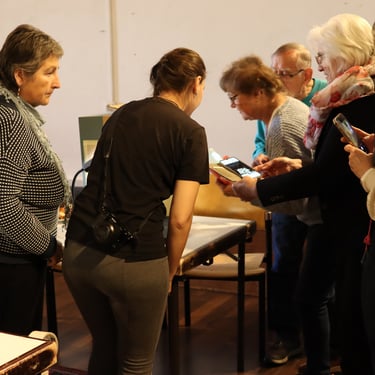
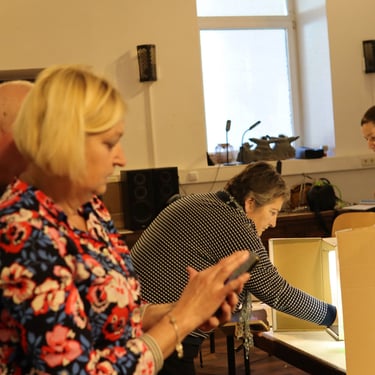
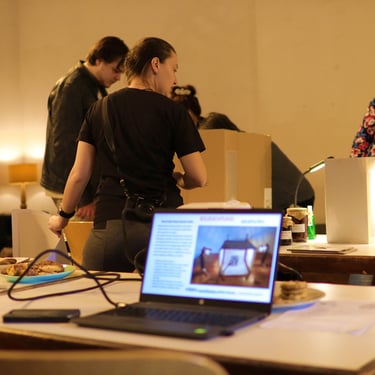
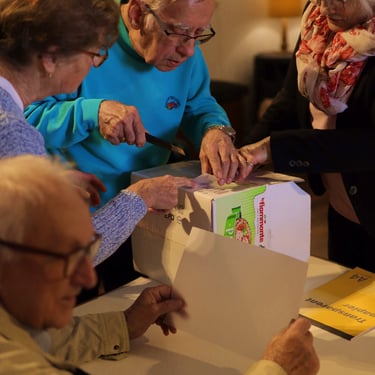

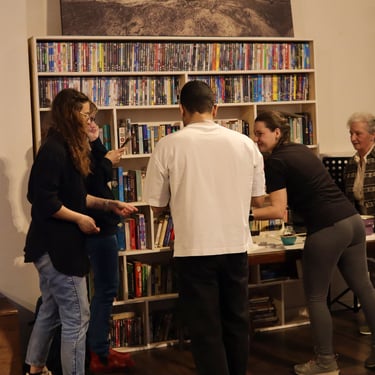
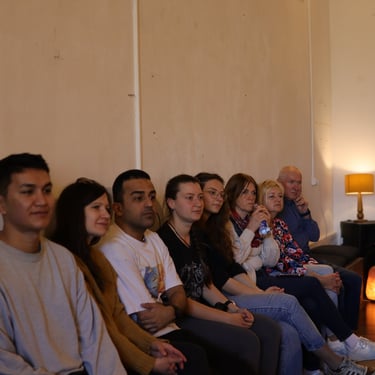
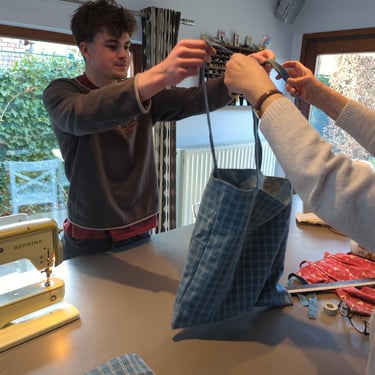
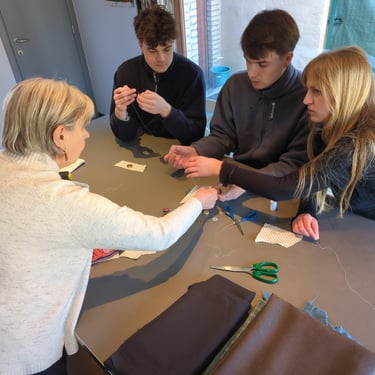
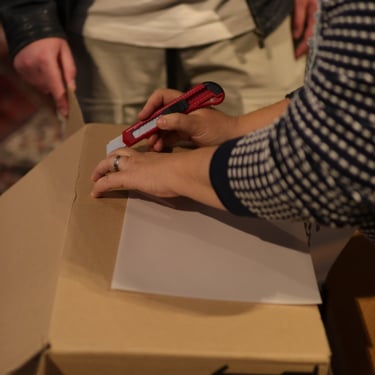
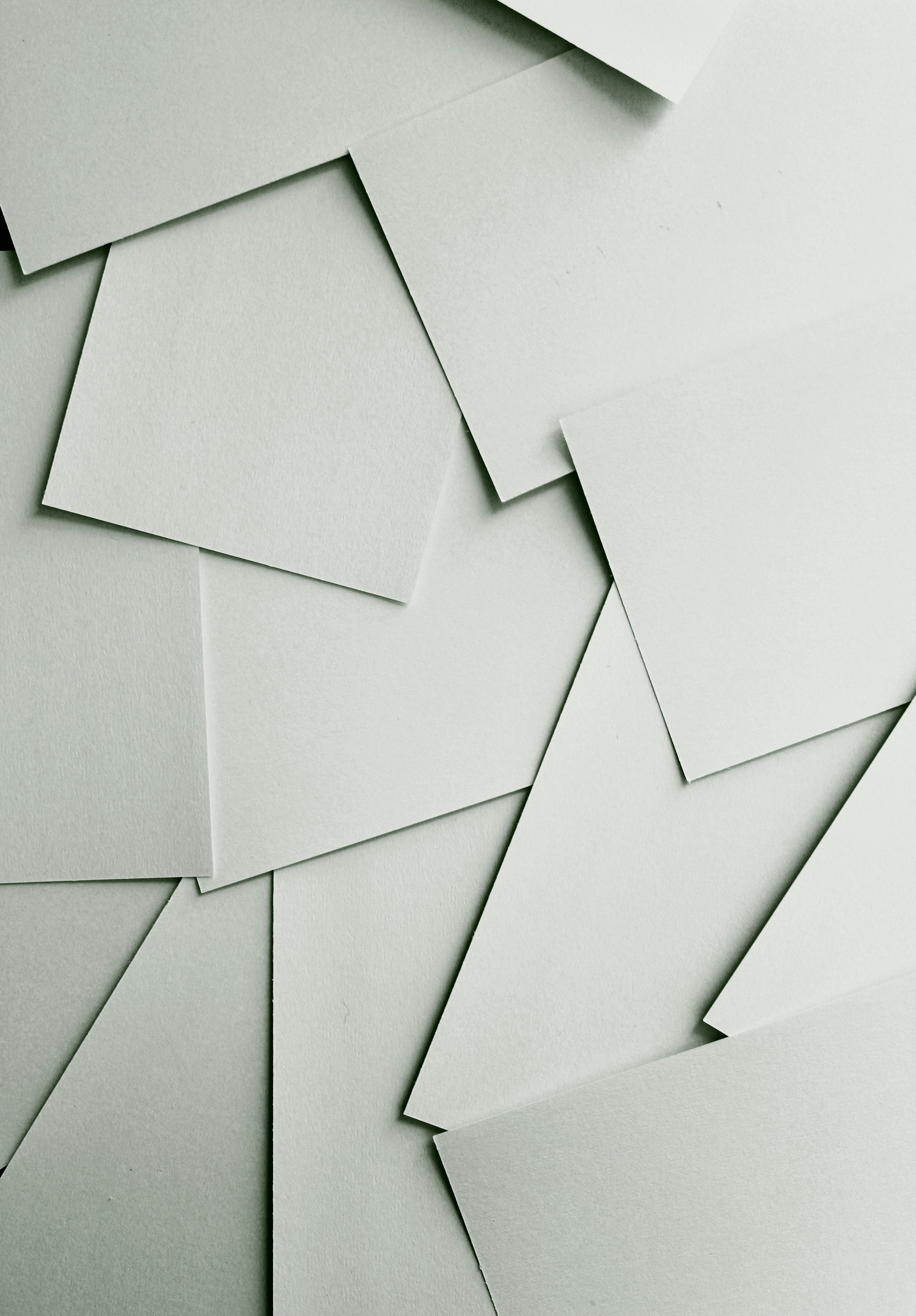
Sign up for the newsletter and receive it via email
Available in the following languages:
Previous editions available bellow
Newsletter February-March 2024
Newsletter October - November 2025


Project number: 2023-1-ES01-KA220-ADU-000155225